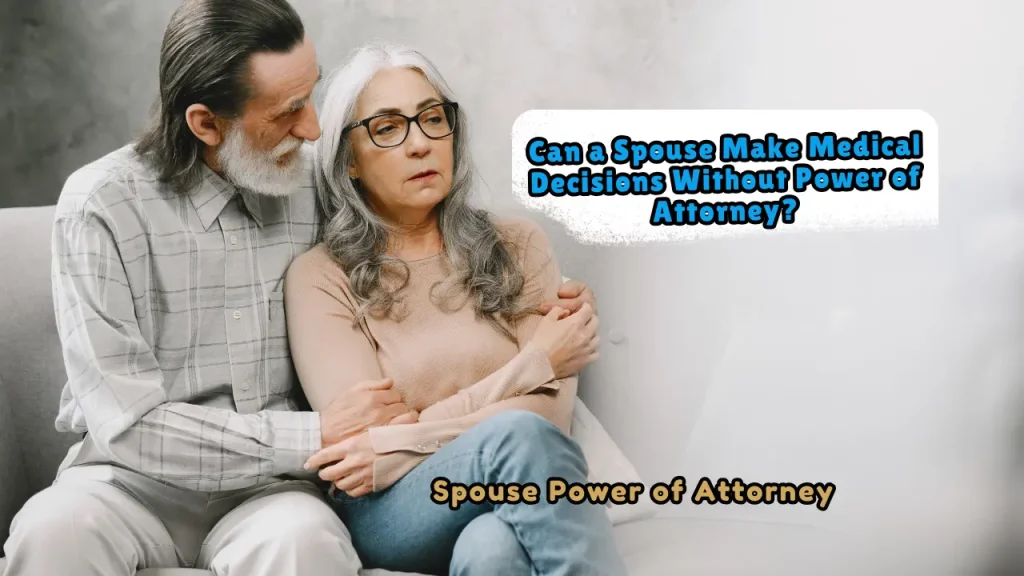Can a Spouse Make Medical Decisions Without Power of Attorney?
In most cases, yes – a spouse can typically make medical decisions for their partner without a formal power of attorney document, but there are important limitations to this authority.
Table of Contents
How Spousal Medical Decision-Making Works
Default Legal Authority
In all 50 U.S. states, spouses generally have some degree of inherent authority to make medical decisions for each other when one partner becomes incapacitated. This is based on:
- Common law principles of spousal privilege
- State healthcare consent laws
- Hospital policies regarding next-of-kin
Typical Situations Where This Applies
- Emergency situations where immediate decisions are needed
- When the patient is temporarily unconscious or sedated
- For routine medical care and procedures
Related article for you:
How to Change Power of Attorney From One Person to Another?

Important Limitations to Spousal Authority
When a POA is Required
A spouse’s decision-making authority may be limited or challenged in these situations:
- Complex or high-risk medical procedures
- End-of-life decisions (ventilator use, DNR orders)
- When other family members disagree
- If the patient previously expressed contrary wishes
- For mental health treatment decisions
State-Specific Variations
- Some states require written documentation for certain decisions
- A few states give equal decision-making authority to adult children
- LGBTQ+ couples may face additional scrutiny in some jurisdictions
How to Strengthen Spousal Decision-Making Rights
Recommended Protections
- Create a Healthcare Power of Attorney – This formally designates your spouse as primary decision-maker
- Complete a Living Will – Documents your specific wishes for end-of-life care
- Have Advance Care Planning Conversations – Ensure you and your spouse agree on treatment preferences
Real-Life Example
In a 2022 Ohio case, a hospital initially refused to let a wife make decisions for her unconscious husband because they weren’t legally married (only common law). This was later overturned in court, but caused significant treatment delays.
When Spousal Consent Isn’t Enough
Situations Requiring Additional Documentation
- Organ donation decisions
- Experimental treatments
- Psychiatric hospitalization
- Withdrawal of life support in some states
Expert Insight
While spouses generally can consent to basic treatment, I’ve seen many cases where the absence of a healthcare POA created unnecessary legal hurdles during critical moments.” – Dr. Sarah Wilkins, Bioethics Specialist at Johns Hopkins
Key Takeaways
- Spouses usually can make routine medical decisions without POA
- Authority becomes uncertain for major/sensitive decisions
- Disputes with other family members are common
- A healthcare POA provides the strongest protection
- State laws vary significantly – check your local regulations
For complete protection, most legal experts recommend completing both a healthcare power of attorney and advance directive, even if you’re married. These documents eliminate uncertainty during medical crises.
About the Author

Sarah Klein, JD, is an experienced estate planning attorney who has helped clients with wills, trusts, powers of attorney, and probate matters. At All About Lawyer, she simplifies complex estate laws so families can protect their assets, plan ahead, and avoid legal headaches during life’s most sensitive moments.
Read more about Sarah
